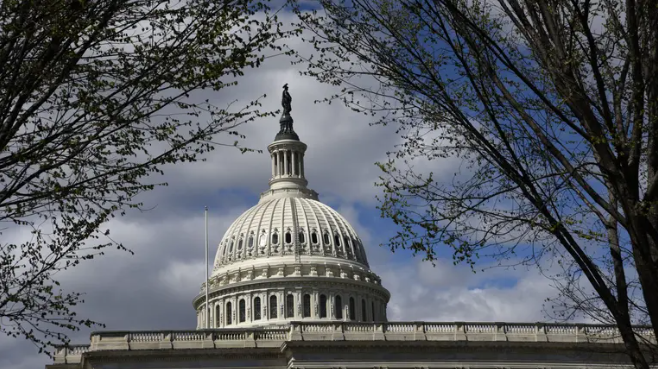
With a staggering $880 billion budget, the nation’s Medicaid program remains a prime target for Republican lawmakers in Washington searching for ways to trim government spending. The program currently serves approximately 80 million adults and children across the United States, including nearly three million Ohioans – among them, Breanna Sprenger of Parma. “I have caregivers 22 hours every single day, and they help me with all of my daily living activities,” Sprenger shared.
Born without legs and her right arm, Breanna first gained public attention in 2009 through her participation in an adaptive aquatics swim program. Over the years, swimming remained a passion, but her ability to live independently has been made possible through a Medicaid waiver that funds her caregivers. Now, with the possibility of budget cuts looming, she fears that independence could be at risk.
“It makes me very nervous hearing about Medicaid cuts possibly happening because Medicaid has allowed me to live an independent life as a person with a disability,” she said. “I would be significantly impacted by that, and I would not be able to live on my own anymore, which is something that I worked really hard to achieve.”
Breanna is not alone in her concerns. Amber Gibbs, superintendent and CEO of the Cuyahoga County Board of Developmental Disabilities, emphasized the widespread impact potential cuts could have. “We have at the county board about 5,500 people that rely on Medicaid waivers, but there are a lot of other people that we serve that rely on other Medicaid services,” Gibbs explained. The board has labeled the possibility of funding reductions as “devastating” and is urging residents to voice their concerns to lawmakers.
“To let them know that these cuts are unacceptable, that there needs to be another way to find money in the budget if you need to do that, and to please help us protect these Medicaid benefits for our most vulnerable citizens,” Gibbs said. Beyond affecting individuals who rely on Medicaid for care, Gibbs warned that cuts could also create financial strain for organizations providing services.
“It would mean a tremendous change for us in terms of the services they might be able to access,” she said. “It will also be devastating in terms of our budget as an organization. We rely on that Medicaid funding, we also rely on levy dollars from a tax levy that taxpayers passed back in 2005, and we may need to go back to taxpayers sooner than expected with those Medicaid cuts.”
The Political Landscape
Ohio’s Medicaid system saw a major shift in 2013 when then-Governor John Kasich expanded the program under the Affordable Care Act. Under this expansion, the federal government pledged to cover 90% of the costs, with the state responsible for the remaining 10%. As a result, over 700,000 additional Ohioans gained health coverage.
Governor Mike DeWine, who had opposed the expansion while serving as attorney general, later acknowledged the difficulty of reversing such a significant policy.
“We will keep Medicaid expansion,” DeWine stated in 2018 during his gubernatorial campaign. “We want to make it sustainable in case, for example, the federal government decides instead of paying 90-plus percent that they’re going to drop that down to a much lower figure.”
Reflecting this stance, DeWine’s latest state budget proposal includes a clause that would automatically end Medicaid coverage for those 700,000 Ohioans if Congress reduces its financial contribution below the 90% threshold.
Uncertainty Moving Forward
While no definitive cuts have been enacted, political figures on both sides of the aisle have voiced differing opinions. Former Trump advisor Steve Bannon has cautioned Republicans to tread carefully, noting that Medicaid remains a crucial program for many within the MAGA movement. Meanwhile, former President Donald Trump himself recently urged lawmakers to avoid reductions to essential safety net programs. “Don’t touch Social Security, don’t touch Medicare, Medicaid, just leave them alone,” Trump said earlier this month.
For now, Breanna Sprenger and thousands of other Ohioans who rely on Medicaid remain in a state of uncertainty. As she continues her work as a Good Life Ambassador for the Cuyahoga County Board of Developmental Disabilities – educating schools and businesses on disability etiquette – she remains hopeful that the program enabling her independence will remain intact. “Yes, I know many people with disabilities in my community, and we would all be very impacted,” she said.